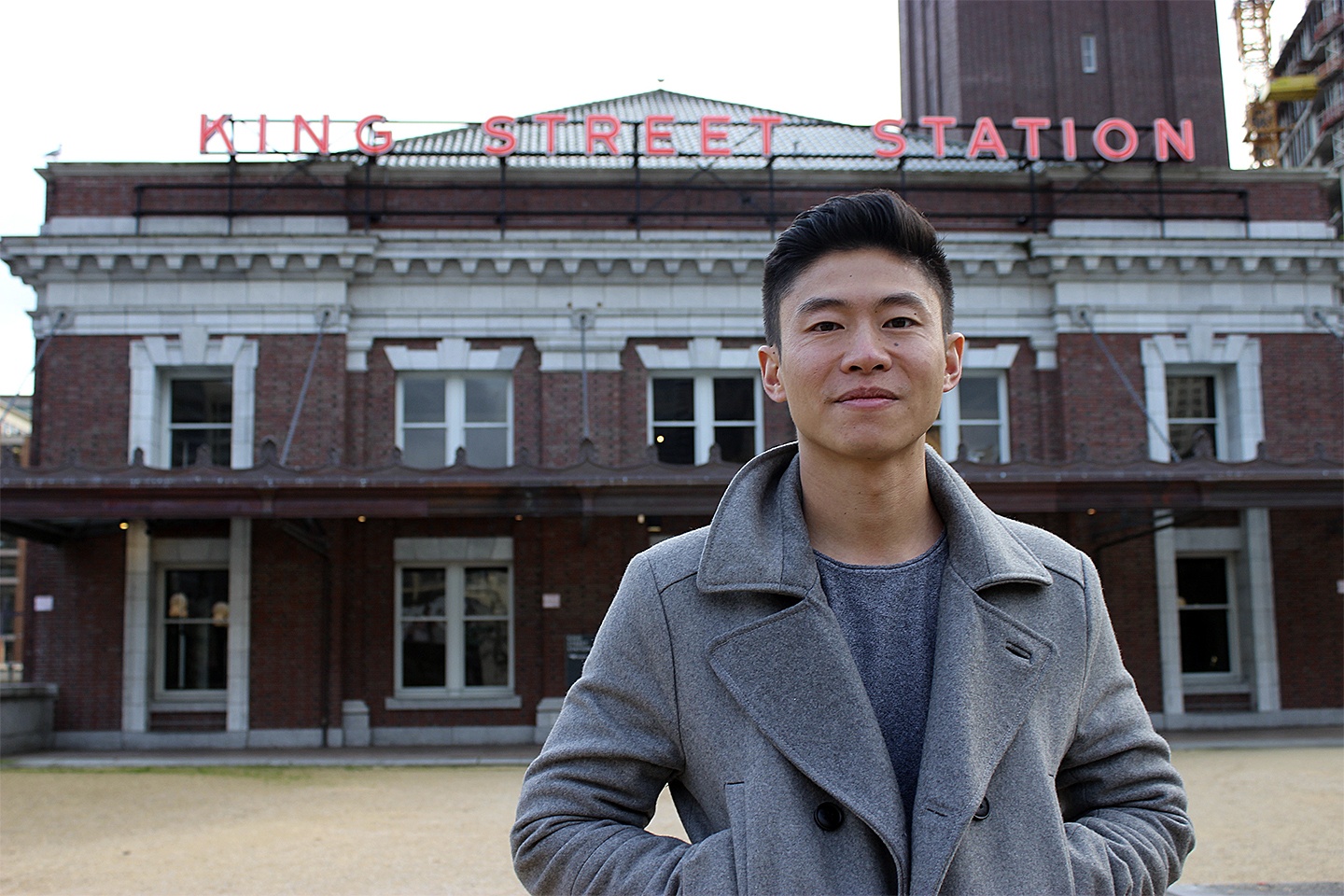Something is going to happen to the unoccupied second floor of King Street Station soon. The only question is what.
Philip Deng has an idea: turn the area into an incubator for immigrant and refugee chefs—a place where, with little overhead and some support, they can learn the restaurant trade while providing hungry Seattleites with heretofore unavailable cuisines from their home countries. While the people serve their food, they would get training on running a small business in Seattle, then rotate out to start their own businesses.
“In its most basic form, I see a market space based on street food and food halls that I saw while traveling in Asia,” says Deng. “Something really set up to allow a cook to get food to customers in as lean a way as possible.”
Deng is the 30-year-old founder and CEO of MarketShare, a nonprofit devoted to his idea of creating an immigrant and refugee food market in the train station. When he talks about the idea, he speaks with the enthusiasm, and in the language, of a tech startup, complete with a compelling origin story.
He says the idea came to him in 2012, when he was working on a voter-registration drive in South Seattle. He would sometimes get invited into homes and taste delicious food. When he would ask if he could go to any restaurants for the dishes, he would be told no—the barriers to entry for many ethnic communities in Seattle were too high for anyone to start a business. The thought occurred to him: “What if Seattle could create a space around this low-income culinary community?”
Not only would such a space help these communities become economically independent, he argues, it would also help Seattle learn about various cultures. “It would de-mystify a lot of otherness, which is obviously a major theme in our society right now,” he says. “It would allow us to come together over food, which is incredibly powerful.”
He founded MarketShare in 2014 without any particular location for the food court in mind. He then met with Chinatown-International District Economic Development Area staff, which pointed out the largely unused space on the Jackson Street level of King Street Station. It was perfect for his vision, and as it happened, his timing was near-perfect as well. Since purchasing the station in 2008, the city of Seattle had been refurbishing the interior to its previous grandeur, and by 2015 was developing ideas for how to use the upper floors (the ground floor being very much still a train station). In his State of the City address this year, Mayor Ed Murray said King Street station was to be transformed into “new public space for Seattle’s arts and culture community, and affordable space for our small businesses.”
Over the summer, Murray convened a Commercial Affordability Advisory Committee, which concluded the second floor of the station should be devoted to food. To make it happen, Murray included $360,000 of federal block grants in the budget he sent to the City Council; the money would go toward renovating the station and finding a company or organization to oversee operations. The Council, which spent the fall adding and subtracting from the budget before voting to approve it last week, didn’t touch the King Street funds. However, it did attach a proviso on the line item: further instructions on how the King Street money should be spent. The proviso, introduced by Councilmember Lisa Herbold and lobbied for by Deng, instructs city staff to, essentially, keep immigrant and refugee communities in mind when designing the food-court plan. In an interview, Herbold said the proviso was simply “putting some bones” on the city’s already stated goals of activating King Street Station with an eye toward equity.
In sum, within 12 months, King Street station has transformed from the erstwhile hub of Seattle transportation to the future home of a large culinary space with a Council mandate to emphasize immigrant and refugee populations.
The stage seems set for Deng and MarketShare, but there’s still plenty of work to be done. In the coming months, the Office of Economic Development will release a request for proposals to entities interested in running the food court. Deng expects several for-profit companies to compete with MarketShare for the contract. He frames the stakes as one between creating another Pike Place Market—run by a nonprofit with strict rules for who can have a stall—and other, less-inspiring markets in town. “In one, you have an institution that rose up to meet a public need,” he says, referring to Pike Place. “Then you have these market-looking spaces that oftentimes end up being attractive, but also very expensive.”
One reservation about MarketShare’s program may be that Seattle is already the home of an extremely diverse culinary scene—that the free market is already serving this need. When a reporter shares such skepticism, Deng is quick with a response: “Where’s your favorite Burmese restaurant?” Touché.
“That’s just one example of a [culture] that needs help. Iraqi, Ukrainian … ” As refugees, Deng says, “they face some monumental challenges that many people don’t face. Wouldn’t it be great if they were validated in one of the few things that has not been taken away from them?”
dperson@seattleweekly.com








